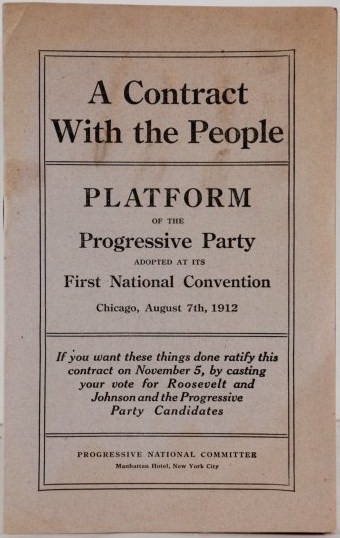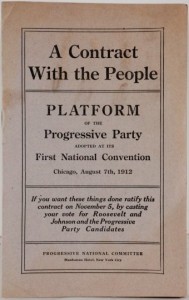 About half a decade ago, I sat in my college freshman orientation class and it was discussed that my generation was apathetic, detached, and essentially unresponsive to the issues that faced us. This is a common refrain about my generation, the Millennial Generation, and typically, newspaper articles have been written about it. That day we argued back. And one student (who dropped out later that semester) made the point that in the past, there had been leaders to rally behind; Martin Luther King, Malcolm X, John Lennon, etc., etc. She said, “where are our leaders? We’re all concerned about these issues, but who do we rally behind?”
About half a decade ago, I sat in my college freshman orientation class and it was discussed that my generation was apathetic, detached, and essentially unresponsive to the issues that faced us. This is a common refrain about my generation, the Millennial Generation, and typically, newspaper articles have been written about it. That day we argued back. And one student (who dropped out later that semester) made the point that in the past, there had been leaders to rally behind; Martin Luther King, Malcolm X, John Lennon, etc., etc. She said, “where are our leaders? We’re all concerned about these issues, but who do we rally behind?”
It’s a question which has haunted me. But I believe they’re out there. Right now, they’re being shaped. But the question is whether they’ll rise to their full potential or be cut down before they can grow.
The national actions that united under the banner of Occupy Wall Street present an interesting dilemma for my generation, and indeed the larger nation. I was present at the first meeting of Occupy Providence, and for a few weeks after that. I marched on October 15th, and in a different capacity, again on December 10th. These were the first marches in my life I’ve ever attended. Believe me when I say that I am often dispassionate about much of anything, but on these marches, especially on the 15th, it was a wonderful feeling.
That joy has largely waned, and I suspect that Octobert 15th was the high watermark of the Occupies in the USA. Occupy needed a Valley Forge, and it has not gotten one. Valley Forge, remembered mostly for the number of deaths the battered revolutionaries faced, is also where the revolutionary army became a true army. It is where it learned discipline, where its officers integrated themselves into the rest of the forces, and where America’s fortunes went from near-defeat to victory; all in the span of a single winter.
Occupy, instead, is freezing to death. Most of its encampments are gone, and only its die-hard supporters still know what the score is. It has managed to shift the national conversation to where most Americans think it should be; jobs and fairness. But the tactics it used were unpopular, and I believe the encampments (the whole “occupation” part of Occupy) divided those who couldn’t afford to encamp from those who could.
Commentators have used the term “Occupy Movement” to describe Occupy, but that is inaccurate. It was a series of actions, across the nation. It resisted leadership, it resisted giving itself a purpose. That resistance has cost it support, it has cost it a true rallying cry. There is no such thing as a movement without leadership. Instead, what happens is that the power of activists becomes utilized by every cause that sees potential in their gathering, no matter how just that cause. Various organizations around them become their de facto leadership. When Occupy is finished, it will look good on a resume, and everyone will say, “well, it’s a shame it just died off.”
Occupy instead should be the open salvo in a larger justice movement that desperately needs to come back to life. 1968 was the last year this justice movement was truly going on. With the deaths of Dr. King and then Robert Kennedy, that movement ground to a halt. Democrats backed away after the crushing defeat of 1972. By 1974, inequality was on the rise. The policies of Jimmy Carter and Ronald Reagan and their Democratic Congresses inaugurated it and every president since then has presided over its expansion. The movement which King and Kennedy and McGovern was forgotten.
Until now. Occupy has given it a desperately needed opening, at precisely the moment when it most needs to return. But we must not be afraid to do what Occupiers don’t desire. A movement without purpose is masturbation. What Occupy cannot do, citizens should not be afraid to do. Let’s draw an example from the Civil Rights Movement.
The Student Nonviolent Coordinating Committee was formed from a conference sponsored by the Southern Christian Leadership Conference. But SNCC was not a branch of the SCLC. They were encouraged to be their own organization. In our shortened memory, we forget how long it takes for movements to germinate, for organizations to spring forth. The Civil Rights Movement had been waged for years before the 1960s, but it came to a head at that moment. And most crucially of all, it was not waged by any one particular organization. An alignment of many organizations, from CORE to the NAACP to the SCLC to many others and a myriad of local organizations helped to build it.
Our new Justice Movement must likewise take on new organizations. Organizations unafraid to stand for solutions, to make demands. We must not be afraid to organize, and to organize well. Occupy has feared aligning with any one organization, and for good reason; it lacks discipline. Without discipline, it cannot say “we march with you, but not for you.” It has been an important vent for frustrations, but those frustrations need to be heard by politicians, not just fellow citizens. And yet, in 2012, it refuses to even threaten the politicians who can do something about it.
If our Justice Movement is to complete the work of 1968, it must not be afraid to voice the concerns and the demands for economic fairness that most Americans have. It must not be afraid to wade into electoral politics, for American revolutionaries have long since given up the gun for the ballot box. If Occupy is to truly bring change, it must learn how to embrace the average American, not make them feel despised. If it cannot, then other people must. It is imperative for the country that we do, since we cannot allow another 40 years of this, or else there will be no country left.
In Rhode Island, we can see the problem clearly. Our politicians openly deny their citizens’ demands for higher taxes on the wealthy. They cite the faulty premise of flight based on taxes. And they press for tax breaks for “development” that builds nothing but empty towers, leaving behind mute monuments to mediocrity. Our best hopes in the political realm have wandered away, or betrayed us, or are else unwilling to take a stand. Now, we as citizens must bring the heat.
It is time to start thinking beyond Occupy, to say that the tactic is played out, the name is meaningless, and better organizations can serve. We can form our own. It is time to foster our leadership, to understand that it’s not bad to be a follower, to listen and to understand. If we want to build a truly meritocratic society, we must allow those better at leading to lead, and those better at organizing to organize, and those better at healing to heal. We all have skills. We need to utilize them.
We can no longer afford to be afraid of utilizing the assistance of politicians, labor unions, corporations, churches or anyone else who is willing to assist us in getting to the goal of a fair and meritocratic United States of America. Obviously, if the conditions of that assistance in unacceptable, then reject it. But there’s no sense in rejecting allies in the current climate.
I worry that my generation will see these protests, see their defeat, and decide that the system is immovable; that despondence is the right answer. This is the first most of us have known of real protest, and yet, the American Occupy “Movement” was probably the least successful and least attended of the popular protest movements that happened around the world in 2011. We need more than occupations. We need new ideas, new people, and new organizations.
It is time for the citizen to once again go into the streets, with a protest sign in one hand and a ballot in the other and march to freedom.
 Essentially, I’m a big fan of initiatives that do two things: 1. make government more responsive, and 2. save government money. At the same time, for those of my generation who see this sort of stuff as patently obvious, it’s nice to know that people are actually doing this somewhere. There’s tons of issues with bureaucracy, but to put it simply, it’s not going away. We also forget (or just plain don’t know) how much policy is being made down the line by people in government. Sometimes, it doesn’t make sense to go after a politician when focusing on a bureaucrat will do just as well, and probably be more successful.
Essentially, I’m a big fan of initiatives that do two things: 1. make government more responsive, and 2. save government money. At the same time, for those of my generation who see this sort of stuff as patently obvious, it’s nice to know that people are actually doing this somewhere. There’s tons of issues with bureaucracy, but to put it simply, it’s not going away. We also forget (or just plain don’t know) how much policy is being made down the line by people in government. Sometimes, it doesn’t make sense to go after a politician when focusing on a bureaucrat will do just as well, and probably be more successful.








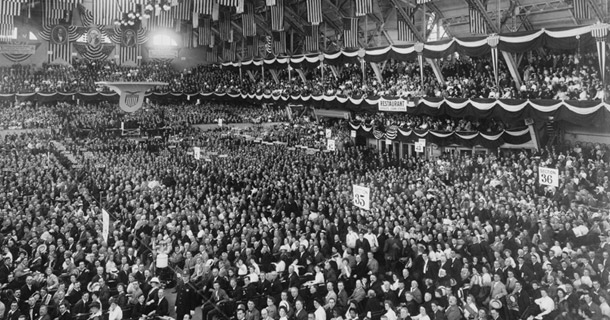


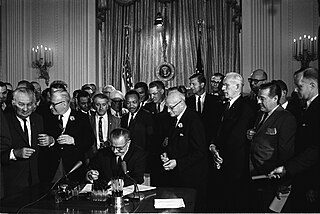

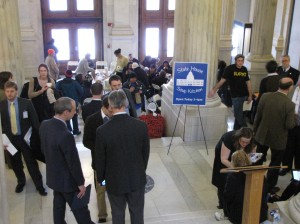
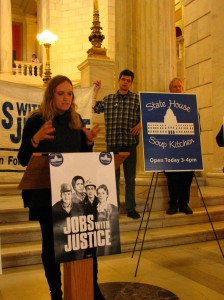
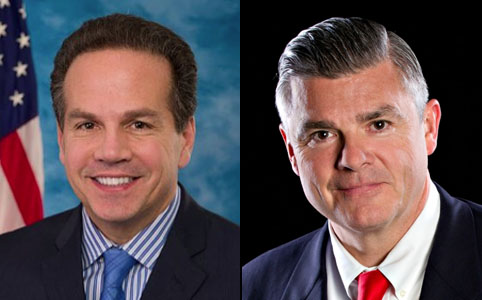
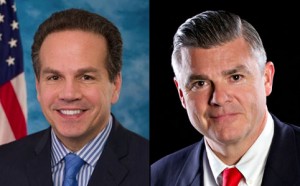
 This might also be the void that either an independent or a Moderate could step into. Lincoln Chafee eked out a close win by appealing to progressives and the base of support he had built up during his tenure in the U.S. Senate. It’s not inconceivable that an independent could avoid the trouble of a Democratic primary while utilizing an aggressive media strategy to get their name in the news. This might also be the race that the Moderate Party could attempt to take on, but no candidates seem to be forthcoming, indeed, the Moderate Party has not even deigned to issue attacks on either candidate. There might be some advantages for an independent or Moderate candidate, since both national parties have damaged their brands severely over the last few years.
This might also be the void that either an independent or a Moderate could step into. Lincoln Chafee eked out a close win by appealing to progressives and the base of support he had built up during his tenure in the U.S. Senate. It’s not inconceivable that an independent could avoid the trouble of a Democratic primary while utilizing an aggressive media strategy to get their name in the news. This might also be the race that the Moderate Party could attempt to take on, but no candidates seem to be forthcoming, indeed, the Moderate Party has not even deigned to issue attacks on either candidate. There might be some advantages for an independent or Moderate candidate, since both national parties have damaged their brands severely over the last few years.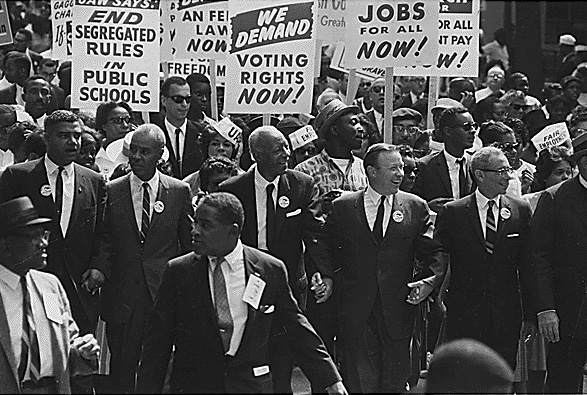


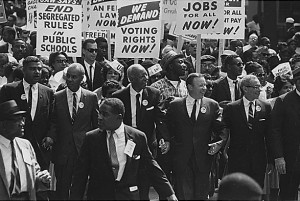



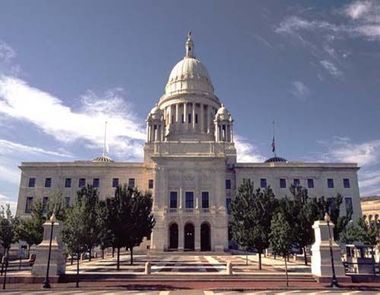

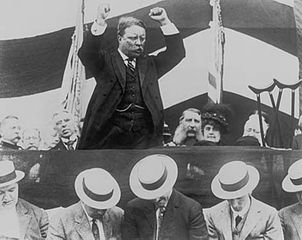



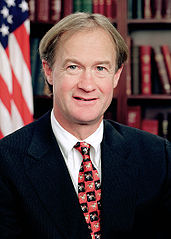


 I’m an atheist. Let’s put that aside right away. I’m an atheist for very personal reasons, and it’s a decision I arrived at after very careful thought and much emotional difficulty. And I understand that this distinction sets me apart from a large majority of my peers and indeed the rest of Americans. To say that life is difficult for an atheist is an understatement, we can see the proof of this today with Jessica Ahlquist in Rhode Island. And as we put a close to this chapter in our history I want to make a call for unity going forward.
I’m an atheist. Let’s put that aside right away. I’m an atheist for very personal reasons, and it’s a decision I arrived at after very careful thought and much emotional difficulty. And I understand that this distinction sets me apart from a large majority of my peers and indeed the rest of Americans. To say that life is difficult for an atheist is an understatement, we can see the proof of this today with Jessica Ahlquist in Rhode Island. And as we put a close to this chapter in our history I want to make a call for unity going forward.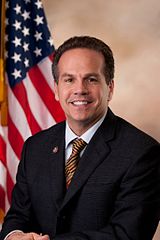 Saying U.S. Representative David Cicilline is vulnerable isn’t news, it’s akin to saying the sky is blue. But despite his flagging popularity, it will be difficult for a known-quantity challenger to knock him off in the primary. It seems likely that Anthony Gemma will be that challenger, having all-but made the announcement. David Segal seems unlikely to attempt to challenge Cicilline again and Bill Lynch’s last-place showing two years ago puts him out of the running, as Mr. Lynch never managed to define himself as much more than a member of the Democratic Party. Two years ago, every candidate facing Mr. Cicilline attempted to position themselves as the anti-Cicilline, with none besides John Loughlin succeeding (who was only the anti-Cicilline by default).
Saying U.S. Representative David Cicilline is vulnerable isn’t news, it’s akin to saying the sky is blue. But despite his flagging popularity, it will be difficult for a known-quantity challenger to knock him off in the primary. It seems likely that Anthony Gemma will be that challenger, having all-but made the announcement. David Segal seems unlikely to attempt to challenge Cicilline again and Bill Lynch’s last-place showing two years ago puts him out of the running, as Mr. Lynch never managed to define himself as much more than a member of the Democratic Party. Two years ago, every candidate facing Mr. Cicilline attempted to position themselves as the anti-Cicilline, with none besides John Loughlin succeeding (who was only the anti-Cicilline by default).
 The importance is with Mr. Segal’s voters. Mr. Segal, a former Green Party City Councilman turned Democratic State Representative from Providence is perhaps best described as hailing from Howard Dean’s “Democratic Wing of the Democratic Party”, a.k.a., the left. Mr. Segal’s voters are most likely to have voted for him because they enjoyed his positions; liberal on social issues, interventionist on economic issues, and green. The thing is that all of these issues won’t favor Mr. Gemma; they’ll favor Mr. Cicilline. If Mr. Segal declines to run, Mr. Gemma should follow suit.
The importance is with Mr. Segal’s voters. Mr. Segal, a former Green Party City Councilman turned Democratic State Representative from Providence is perhaps best described as hailing from Howard Dean’s “Democratic Wing of the Democratic Party”, a.k.a., the left. Mr. Segal’s voters are most likely to have voted for him because they enjoyed his positions; liberal on social issues, interventionist on economic issues, and green. The thing is that all of these issues won’t favor Mr. Gemma; they’ll favor Mr. Cicilline. If Mr. Segal declines to run, Mr. Gemma should follow suit. 1 Gemma Harder: Mr. Gemma runs alone against Mr. Cicilline. Mr. Gemma runs on many of the same themes that he used last time, attempting to hammer Mr. Cicilline with the state of affairs in Providence. No matter what happens in Providence, Mr. Cicilline is buoyed by former Segal and Lynch voters who don’t wish to see Mr. Gemma in the U.S. House. Outspent and outvoted, Mr. Gemma is defeated handily.
1 Gemma Harder: Mr. Gemma runs alone against Mr. Cicilline. Mr. Gemma runs on many of the same themes that he used last time, attempting to hammer Mr. Cicilline with the state of affairs in Providence. No matter what happens in Providence, Mr. Cicilline is buoyed by former Segal and Lynch voters who don’t wish to see Mr. Gemma in the U.S. House. Outspent and outvoted, Mr. Gemma is defeated handily. Those parties that haven’t faced such trouble (due to favorable election timing) were instead forced to enact strong austerity measures. 2012 is likely to punch their tickets. France and Greece both face elections. Nicholas Sarkozy, the French President, is likely to go down in defeat to his Socialist Party challenger. Greece is even odder. While the right-wing New Democracy Party will undoubtedly be the the largest party, they will be faced by newer parties that will be even further left than PASOK. It not inconceivable that a left-wing, anti-austerity coalition will form in Greece, especially if the country defaults even while it enacts austerity.
Those parties that haven’t faced such trouble (due to favorable election timing) were instead forced to enact strong austerity measures. 2012 is likely to punch their tickets. France and Greece both face elections. Nicholas Sarkozy, the French President, is likely to go down in defeat to his Socialist Party challenger. Greece is even odder. While the right-wing New Democracy Party will undoubtedly be the the largest party, they will be faced by newer parties that will be even further left than PASOK. It not inconceivable that a left-wing, anti-austerity coalition will form in Greece, especially if the country defaults even while it enacts austerity.